
Southern Illinois Healthcare Foundation’s START NOW Breast Cancer Awareness Services works to help provide care for patients who are living with breast cancer and women who are unsure of their breast health status. The START NOW team works directly with medical providers, surgeons, oncologists and mental health workers. The team also works in the community, spreading awareness and educating the more at-risk population.
Grant funding from Susan G. Komen Missouri is the main source of financial funding for START NOW. The Komen Missouri grant for the START NOW program gives financial assistance to women without insurance, and allows women to receive annual clinical breast exams and mammograms. The grant provides staffing of navigators, transportation and gas cards to help women keep their appointments.
Debra Custer is the program manager and a treatment navigator for the START NOW Program. Debra has been working with START NOW since April 2008. As program manager, her role is to, “ensure that the day-to-day functions and activities are meeting all the grant requirements, continue to build and strengthen our community partners, and find new community partners to enhance our network circle.”
As a treatment navigator, Debra is responsible for overseeing all of the women who receive an abnormal mammogram and women who receive a benign or positive result for breast cancer. “I work to reduce or eliminate any barriers related to breast care promptly and try to empower [patients] to take a more proactive approach to their overall health needs.”
Debra describes the treatment navigator role as a “supportive resource” who helps with financial assistance and emotional and mental health issues related to coping with a breast cancer diagnosis.
Debra recalls a patient story that has affected her throughout her years working with START NOW. A patient was referred to START NOW because she needed a diagnostic mammogram and did not have a way to pay for the service. This patient’s medical provider called Debra because the patient had a breast mass and needed additional appointments and services.
The patient visited Debra’s office and Debra consoled her. Debra helped the patient apply for the Illinois Breast and Cervical Cancer Program, and contacted the local IBCCP agency for approval and to schedule an exam for the patient. The diagnostic mammogram came back suspicious for malignancy and the patient was recommended to have a biopsy. Debra helped the patient schedule an appointment with a surgeon.
The biopsy came back positive for breast cancer, and Debra helped the patient complete another application so that she could continue her treatment. “Her postoperative treatment following the radical mastectomy was without incident and proceeded with reconstructive breast surgery. After reconstructive breast surgery, the oncologist recommended radiation treatment on the right breast.” The patient completed her treatment regimen, and seven years later remains cancer free. The patient told Debra, “I can’t stop thanking you enough for being what I needed when I needed it.”
Susan G. Komen Missouri’s community grants help fund local breast cancer screening, breast health education and patient navigation and support services for those in our community who otherwise may not have access due to low income, lack of insurance or other barriers.
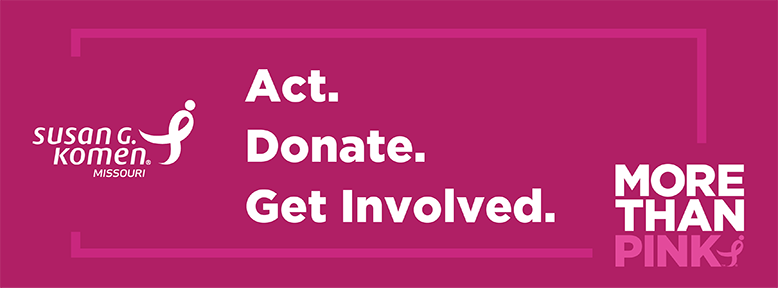


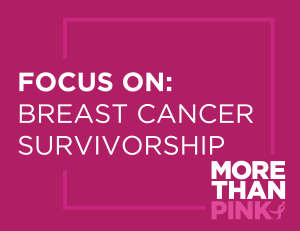 Breast cancer survivors have an increased risk of getting a new breast cancer compared to those who have never had breast cancer. That is why it is important to get the follow-up care your doctor recommends. With proper follow-up, your doctor can keep track of how you are doing. This includes checking for and treating side effects. Follow-up care can also help ensure any recurrence of breast cancer can be found early when treatment is most effective.
Breast cancer survivors have an increased risk of getting a new breast cancer compared to those who have never had breast cancer. That is why it is important to get the follow-up care your doctor recommends. With proper follow-up, your doctor can keep track of how you are doing. This includes checking for and treating side effects. Follow-up care can also help ensure any recurrence of breast cancer can be found early when treatment is most effective.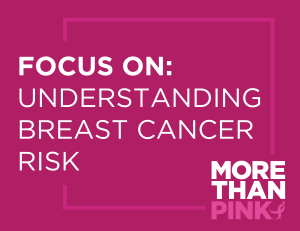 In the past, many women used menopausal hormone therapy (MHT), also known as hormone replacement therapy, to relieve hot flashes and other symptoms of menopause. But studies show that use of estrogen plus progestin increases the risk of both developing and dying from breast cancer. Although MHT is approved for the short-term relief of menopausal symptoms, the U.S. Food and Drug Administration (FDA) recommends women use only the lowest dose that eases symptoms for the shortest time needed.
In the past, many women used menopausal hormone therapy (MHT), also known as hormone replacement therapy, to relieve hot flashes and other symptoms of menopause. But studies show that use of estrogen plus progestin increases the risk of both developing and dying from breast cancer. Although MHT is approved for the short-term relief of menopausal symptoms, the U.S. Food and Drug Administration (FDA) recommends women use only the lowest dose that eases symptoms for the shortest time needed.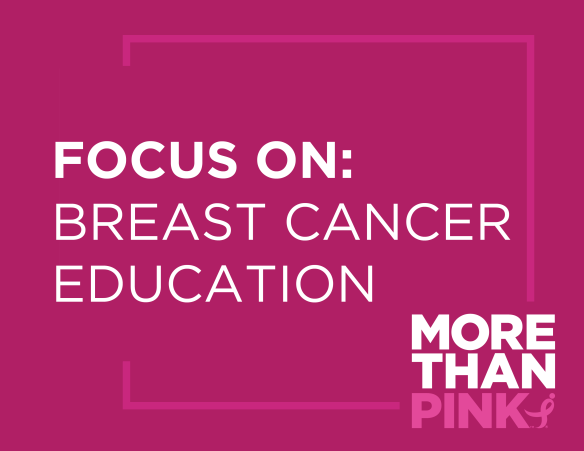 Take charge of your health and sign up to receive a mammogram and/or clinical breast exam reminder.
Take charge of your health and sign up to receive a mammogram and/or clinical breast exam reminder.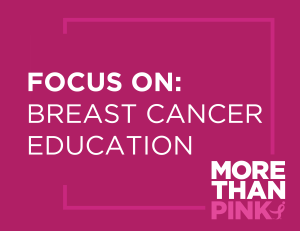 Mammography is a screening tool that uses X-rays to create images of the breast. These images, called mammograms, are used to find early signs of breast cancer such as a dense mass or clusters of calcium.
Mammography is a screening tool that uses X-rays to create images of the breast. These images, called mammograms, are used to find early signs of breast cancer such as a dense mass or clusters of calcium.